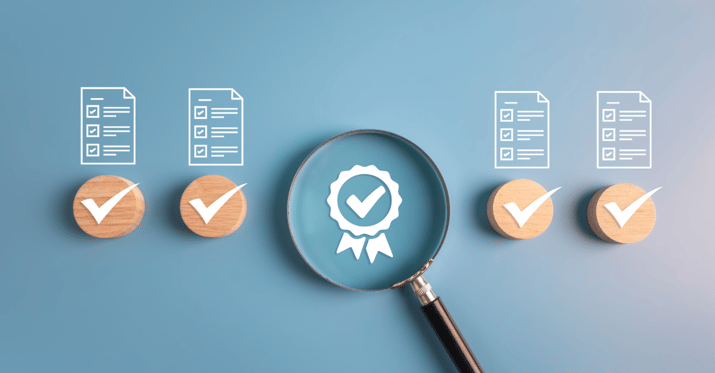What Every CIO/CISO Needs to Know About Cybersecurity and CMMC
Executive brief
Understanding the Cybersecurity Maturity Model Certification (CMMC) is essential for Chief Information Officers (CIOs) and Chief Information Security Officers (CISOs) to maintain a robust security posture. As the defense industry becomes more reliant on digital solutions, ensuring compliance with CMMC can mean the difference between securing new contracts or falling behind competitors.
As CMMC 2.0 goes into effect on December 16, 2024, this article details key insights your CIO/CISO should know about cybersecurity and CMMC. The key themes are:
- CMMC Compliance as a Competitive Advantage: By adhering to CMMC standards, organizations can enhance their cybersecurity posture, streamline operations, and attract new business opportunities within the defense industry.
- The Importance of Proactive Cybersecurity: Organizations must prioritize continuous monitoring, leverage MSP partnerships, and invest in IT infrastructure upgrades to effectively mitigate risks and maintain CMMC compliance.
Dig deeper and continue reading below!
7 Things Every CIO/CISO Should Know About CMMC and Cybersecurity
The CMMC framework protects sensitive information within the Defense Industrial Base (DIB)—in particular Controlled Unclassified Information (CUI) and Federal Contract Information (FCI). Understanding the intricacies of the CMMC framework is vital for maintaining compliance and safeguarding data.
1. Enhanced Cybersecurity Aligns with Your Greater Business Goals
For CIOs and CISOs, achieving CMMC compliance isn't just about meeting regulatory information security requirements; it's about gaining a competitive edge. Compliance with the CMMC program streamlines security processes and enhances operational efficiency, making your organization more attractive to potential clients and partners.
Early adopters have a distinct advantage. By aligning with this framework, your business can respond proactively to emerging threats and regulations, ensuring a resilient and adaptable security strategy. The CMMC phased rollout is quickly approaching; meeting compliance requirements today means you’ll be better positioned to stay ahead of new developments while other companies are simply struggling to keep up. That puts you at the front of the line for new contracts and demonstrates your commitment to protecting your clients.
2. Better Cybersecurity Hygiene Improves Your Data Management
CMMC compliance goes beyond protecting CUI. It fundamentally transforms your internal data management systems, fostering better cybersecurity hygiene. By adhering to CMMC requirements, organizations can enhance data integrity, reduce vulnerabilities, and ensure critical information's confidentiality, integrity, and availability.
In addition, implementing CMMC practices encourages a culture of vigilance and accountability within your organization. It empowers your IT team to adopt best practices for data protection, ensuring that your company handles sensitive information with the utmost care. This proactive approach to cybersecurity strengthens your defenses and enhances your reputation as a trustworthy partner in the defense sector.
3. Exceptional Cybersecurity Improves Your Reputation and Helps You Attract New Talent
Organizations prioritizing cybersecurity and demonstrating a commitment to excellence in this area can stand out as employers of choice. By being at the forefront of cybersecurity standards, you bolster your reputation and create an environment that attracts skilled professionals who value security-conscious workplaces. This competitive advantage can significantly enhance your ability to recruit and retain top talent, empowering your organization to thrive going forward.
4. CMMC Compliance Will Upgrade Your IT Infrastructure
CMMC compliance is a catalyst for upgrading your IT infrastructure. The full implementation process comprehensively evaluates your existing systems and identifies potential vulnerabilities and areas for improvement, enabling you to make informed decisions about necessary upgrades.
Investing in modernizing your infrastructure strengthens your cybersecurity posture and positions your organization for long-term success in an evolving threat landscape. By aligning with CMMC standards, you can enhance your company’s capabilities, streamline processes, and optimize overall performance.
5. Understanding the Financial Implications of Non-Compliance
Non-compliance with CMMC can have significant financial repercussions. Failing to meet the cybersecurity standards outlined in the CMMC framework can result in reputational damage, financial penalties, and the loss of valuable contracts. Maintaining compliance is not optional for organizations operating within the Department of Defense (DoD) supply chain—it's a critical business necessity.
Failing an audit or losing out on contracts can have far-reaching consequences for your organization's bottom line. By prioritizing compliance and aligning your cybersecurity strategy with CMMC requirements, you can mitigate financial risks and ensure continued success in the defense sector.
The approaching timeline for CMMC compliance underscores the urgency of taking action. CMMC 32 CFR entered the federal register on October 15, 2024, and the rule became effective on December 16,2024. Contractors can expect to see subsequent regulatory requirements appearing in new contracts and in revisions to old ones as early as Q2 of 2025.
6. Good MSP Partners Provides Reliable IT Support
Partnering with a Managed Service Provider (MSP) can be a game-changer for organizations seeking to achieve and maintain CMMC compliance. MSPs offer specialized expertise and resources that can streamline the compliance process, allowing your internal IT team to focus on core business functions. ISI provides 24/7, US-staffed tech support to ensure your organization's cybersecurity needs are met around the clock.
MSPs can simplify compliance reporting, offer sophisticated security services, and act as assessors who identify and mitigate new risks. By leveraging the expertise of a trusted MSP partner like ISI, you can enhance your organization's cybersecurity posture and achieve compliance with minimal disruption to your business operations.
>> Learn more about the benefits of MSPs in achieving CMMC compliance here.
7. Continuous Monitoring Helps You Stay Ahead of Emerging Threats and Technologies
Continuous monitoring is a crucial component of maintaining CMMC compliance. It enables organizations to avoid emerging cyber threats and ensure their cybersecurity practices remain effective and current. By implementing a robust continuous monitoring program, you can proactively identify and address security risks, improving your overall security posture.
Continuous monitoring involves using automated tools to detect security threats, maintain compliance, and manage risks in real-time. This proactive approach enhances your organization's ability to respond to threats and provides valuable insights for making informed security decisions.
>> Explore the importance of continuous monitoring for CMMC compliance here.
Let ISI Help with Your CMMC and Cybersecurity Needs
At ISI, we understand the unique challenges organizations face confronting CMMC compliance. Our team of experts is dedicated to providing comprehensive security solutions and expert guidance to help you succeed. Whether you're just starting your compliance journey or seeking to enhance your existing cybersecurity practices, we're here to support you every step of the way.
Our services include CMMC compliance support, managed IT solutions, and cybersecurity strategies tailored to your organization's specific needs. By partnering with ISI, you can focus on what you do best—bidding for and completing critical work—while we handle the complexities of compliance and security operations.
Contact us today to learn how we can empower your organization to achieve its cybersecurity goals.
FAQs about CMMC and Cybersecurity
Who Needs CMMC Certification?
Certification is required for organizations with contractual obligations operating within the DIB. Self-attestation is required for those with FCI or CMMC Level 2 self-attestation requirements.
How Does CMMC Apply to Subcontractors?
Subcontractors must adhere to the same CMMC requirements as prime contractors. They are responsible for implementing cybersecurity measures that align with the CMMC framework to protect CUI and FCI within their systems.
How Does CMMC Differ from NIST SP 800-171a Rev2?
While both CMMC and NIST SP 800-171a Rev2 focus on cybersecurity, CMMC is focused on the process of verifying a contractor’s compliance posturing as it pertains to the sensitive information they handle (i.e. CUI, FCI,etc.). NIST SP 800-171a Rev2, on the other hand, provides guidelines for protecting CUI.
For example, while NIST 800-171a Rev2 lays out 110 controls and 320 objectives for how CUI-handling organizations manage their cybersecurity, CMMC establishes Level 2 certification and standardizes the verification process for demonstrating that you have implemented those controls.
What Is the Difference between CMMC 1.0 and CMMC 2.0?
CMMC 2.0 streamlines the certification process, reducing the number of maturity levels from five to three and establishing a self-assessment process for organizations that only need to meet Level 1 (and in some cases, Level 2) requirements. It emphasizes a more flexible approach to compliance, allowing organizations to tailor their cybersecurity practices to their unique needs.
What Are the Different Levels of CMMC Certification?
CMMC certification includes three specific levels, each representing a different degree of cybersecurity maturity:
- CMMC Level 1 (Foundational): This level focuses on basic cybersecurity practices, including 17 essential controls, such as access control and physical security measures. It requires an annual self-assessment and annual affirmation.
- CMMC Level 2 (Advanced): This level includes all Level 1 practices and expands to implement all 110 security controls from NIST SP 800-171. For most companies at Level 2, a C3PAO assessment is required every three years. Select programs may only require a self-assessment every three years. In both cases, affirmation is required annually.
- CMMC Level 3 (Expert): This highest level involves comprehensive cybersecurity practices, including those from Levels 1 and 2, plus additional controls from NIST SP 800-172. A DIBAC assessment is required every three years along with an annual affirmation.
What Are the Key Requirements for CMMC Level 2 Compliance?
CMMC Level 2 compliance requires organizations to implement advanced security measures to protect CUI. It builds upon NIST SP 800-171a Rev2 controls and focuses on safeguarding sensitive information within the DoD supply chain. It requires more advanced measures like incident response and risk management, with triennial assessments and annual affirmations, suitable for handling CUI.
Can I Use Cloud Services Like Microsoft 365 and Still Be CMMC Compliant?
As of September 23, 2024, Microsoft 365 Commercial is no longer recognized as FedRAMP equivalent, prompting a significant shift for defense contractors. Still, organizations can use cloud services like Microsoft 365 by transitioning to a compliant Microsoft 365 environment (i.e. Microsoft GCC or GCC High). Microsoft 365 Commercial is still acceptable for storing FCI, but not for storing CUI.
By understanding the nuances of CMMC and its implications for your organization, you can confidently navigate the path to compliance and enhance your cybersecurity posture. At ISI, we are committed to supporting your success and helping you achieve your cybersecurity goals.




